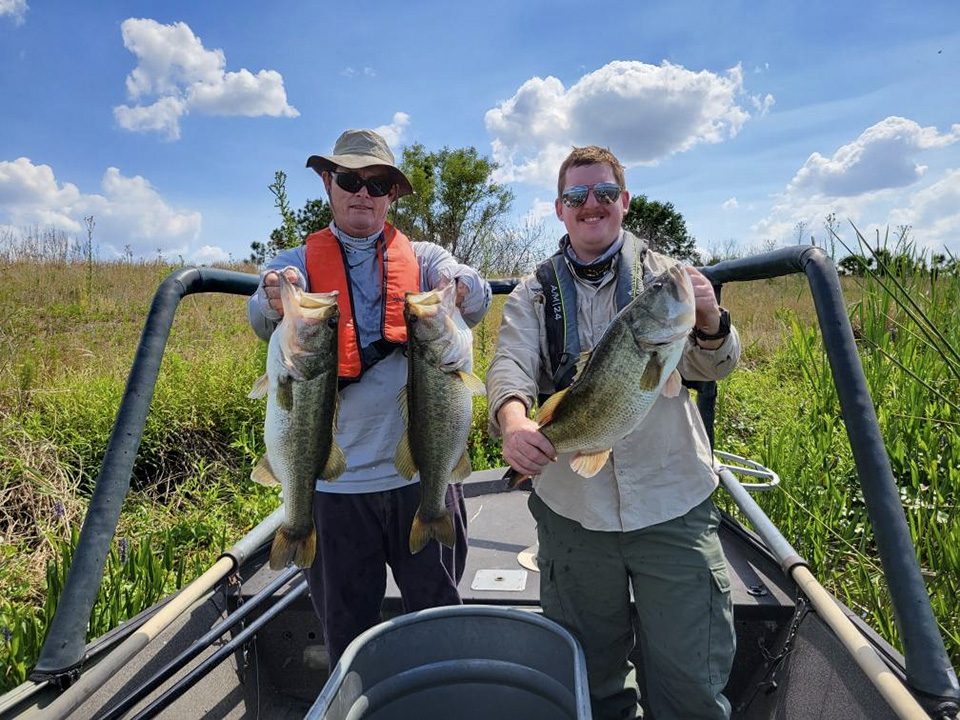
New name, same fish: Learn more about the largemouth bass to Florida bass name change
Florida bass has now been designated a separate species from largemouth bass. Florida bass and largemouth bass will be considered within the same species for regulations since they are visually indistinguishable.
Why was this name change made?
Genetics studies confirmed what many anglers and biologists have believed for a long time – Florida bass are special! Recent research at Yale University using advanced genetic analysis has determined Florida bass to be its own species. The research also identified the range of Florida bass to be larger than once believed, including not only Florida, but also parts of Georgia, South Carolina, and North Carolina.
Why does this matter?
Understanding and conserving fish species is crucial for sustainable recreational fishing and biodiversity preservation. The classification of species plays a key role in these efforts. Black basses (Micropterus spp.) are well-known freshwater fish and highly popular for recreational fishing. This new understanding of black bass diversity, distribution, and classification provides a critical foundation for better managing and conserving these important and iconic fish. It will aid in ensuring their continued conservation and sustainable use for future generations.
How will this impact bass fishing in Florida?
The name change will not affect how anglers fish for bass in Florida. It will impact how anglers see bass referred to in Florida. In most of Florida, excluding the western panhandle, what was formerly known as largemouth bass will now be referred to as Florida bass in news releases, articles, regulations booklets, signs, etc.
What does this mean for TrophyCatch?
Florida bass and largemouth bass are still accepted into the program.
Can I visually tell the difference between Florida bass and largemouth bass?
No. Florida bass and largemouth bass are not distinguishable from each other visually. Genetic testing must be performed to determine the species.
How can anglers ensure they are correctly following regulations if they can’t tell the difference between the two species?
Regulations will be the same for both species throughout Florida, so there is no need for anglers to distinguish between the two species for regulations purposes.